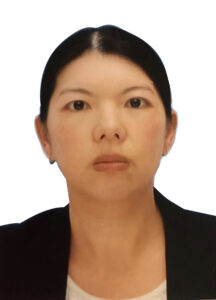TANIGUCHI Kyoko
Associate Professor
- Ph.D., Hiroshima University
- tanikyo[a]hiroshima-u.ac.jp
*Please replace [a] with @ when sending e-mail.
Major Professional Backgrounds
- Japan Overseas Cooperation Volunteers (JOCVs), Malawi, Science and Mathematics Teacher (2006-2009)
- International Association for the Evaluation of Educational Achievement (IEA), Data Processing and Research Center (DPC), Internship (2013)
- Japan Society for the Promotion of Science, Graduate School for International Development and Cooperation, Hiroshima University, Research Doctoral Fellow (2014-2015)
- Japan Society for the Promotion of Science, Graduate School for International Development and Cooperation, Hiroshima University, Research Postdoctoral Fellow (PD) (2015-2016)
- Japan Society for the Promotion of Science, Graduate School of International Development, Nagoya University, Research Postdoctoral Fellow (PD) (2016-2019)
- Japan Society for the Promotion of Science, Graduate School of Education and Human Development, NagoyaUniversity, Restart Postdoctoral Fellow (RPD) (2019-2020)
- Hiroshima University, International Education Development Program, Division of Educational Sciences, Graduate School of Humanities and Social Sciences, Associate Professor (2020-)
Please refer to the following link for more research achievements. Kyoko Taniguchi (hiroshima-u.ac.jp)
Research Areas and Themes
I study educational development in middle- and low-income countries. In particular, I am interested in an education function model in regard to the human capital theory. Also, I use a test theory. I analyze both data from fieldwork and large-scale international assessments. The following are keywords for the study: school effectiveness research, school management, community participation, grade repetition, school dropout, student transfer, academic achievement, etc.
- Regarding school effectiveness research, using an input-process-output model, I identify which inputs and processes influence outputs. Also, I describe what kinds of processes affect outputs.
- Regarding determining the causes of non-completion of primary and secondary schools, I conduct longitudinal research that follows the same students and schools over the years. Then, I empirically analyze factors influencing grade promotion, grade repetition, school dropout, and school transfer.
- Regarding improving academic achievement, I make and examine achievement tests based on the test theory. Also, I analyze which factors influence academic achievement.
Research Areas and Themes of the Students
Educational policy, educational planning, school effectiveness research, school management, community participation, grade repetition, school dropout, student transfer, academic achievement, development of skilled human resources, life skills education, etc.
The main research topics of the supervising students are as follows:
-
The School Principals’ Perspectives on the Practice of School-Based Management: Leadership Skill Needs and Challenges
-
Promotion of Arts Education in Primary School in Benin
-
Improvement the Quality of Teacher Multi-Grade Class Teaching in Lao PDR
-
The School Management with Community Engagement Contributing Student Academic Performance in Disadvantaged Area: A Case Study of Presh Vihea Province, Cambodia
Message to Prospective Students
We need to study educational development in middle- and low-income countries through an empirical and evidence-based approach. The significance of the research is to identify whether the common sense is true and what kinds of approaches are effective.
I am glad to receive those interested in enthusiastically studying educational development and planning in middle- and low-income countries.

